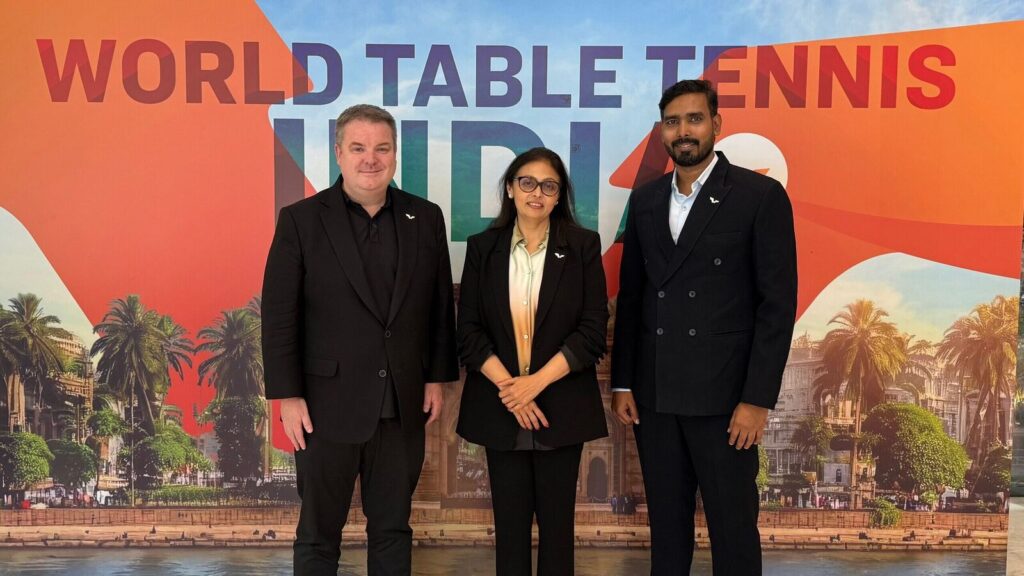The move aims to transform India into a global table tennis hub, with entrepreneur Vita Dani, founder of Ultimate Table Tennis (UTT) and chairperson of 11Sports, joining the board as a stakeholder and strategic partner, and top Indian paddler Achanta Sharath Kamal coming in as ambassador of the new venture.
“India is the most populous country in the world and an important strategic market for us,” Steve Dainton, chief executive of WTT, told Mint. “With momentum building through UTT and Indian players performing better internationally, it’s the right time to deepen our presence.”
Also read: RCB stake sale talk swirls after historic win. Speculation or strategy?
While WTT’s global events are structured across tiers—Grand Smashes, Champions, Star Contenders and Feeder events—the India chapter will begin with a few Feeder and youth events and eventually look to bid for a marquee event. “The three-to-five-year plan is to bring one of our major tournaments to India, possibly even the World Table Tennis Championships,” Dainton said.
Coexistence, not cannibalization
Despite the new alliance, the UTT will continue to operate as an independent intellectual property. “This is not a merger. WTT India and UTT will co-exist. But we’ll have synergy at a broader level to grow the game,” Dani clarified, adding that the new entity will be jointly run, with commercial viability as a key guiding principle.
“Leagues like UTT and global properties like WTT are very different formats. One is franchise-based and designed for fan participation and team narratives, the other is athlete-centric and performance-driven. They will complement each other,” she said.
Dainton echoed the view: “UTT has created a strong base for the sport and WTT can build on that, starting from media and sponsorships to talent exposure. Managing this locally with people like Ms Dani will be far more effective than operating from afar.”
Growing the sport, not just events
Beyond hosting international events, WTT India is being positioned as a long-term ecosystem builder. The investment includes not just prize pools and operational costs but also grassroots and developmental focus.
Dani confirmed that her Dani Foundation, which works on physical literacy and high-performance training, would feed into this pipeline. “Whether it’s academies, youth events, or capacity building, we’ll use the existing infrastructure and scale it further through this partnership,” she said.
Also read: Gen Z wants more than cricket from sports entertainment, looks for engagement
WTT, meanwhile, plans to work closely with former Indian table tennis player and 10-time national champion Sharath Kamal to build India’s talent pipeline. “We want more Indian players in the top 50 and to do that, we need regular exposure, world-class events, and ranking points right here,” Dainton said.
Financial accessibility is also a key component of the strategy. “Not every Indian player can afford to travel abroad to participate in ranking events. If we can hold more tournaments here, we may move from five Indian players to 15 participating internationally, without leaving the country,” Dani said.
The commercial play
On the revenue side, WTT’s India playbook will focus on media rights, sponsorships and fan engagement; however, the executives acknowledge that it’s still early days.
“We are starting from a humble base. WTT will invest in marketing, local partnerships and digital infrastructure to identify and build a fanbase for professional table tennis in India,” said Dainton.
Dani pointed to UTT’s growth curve as a proof point. “In Season 1, we had to request people to show up at stadiums. This year, we had sold-out days. And if we could do that with a league, imagine what a Grand Smash or a World Championship could do.”
On profitability, she claimed some UTT franchises have already broken even, while others are close. “As more money flows in and more sponsors come on board, sustainability will improve,” she added.
What’s next
The final paperwork is expected to be signed in the coming days. The initial team will be small and cost-efficient. “There is fantastic operations and administrative talent in India, we’ll scale smartly and keep tight financial controls,” Dani said.
Also read: India’s sports economy inches closer to $2 billion
Asked whether India could become a top-five market for table tennis globally, Dani said: “It won’t happen overnight. But the trajectory is right, and if we bring quality events with strong Indian participation, it’s very achievable.”
Dainton was more bullish. “In ten years, I believe table tennis can be the second-most popular sport in India. That’s the goal.”

